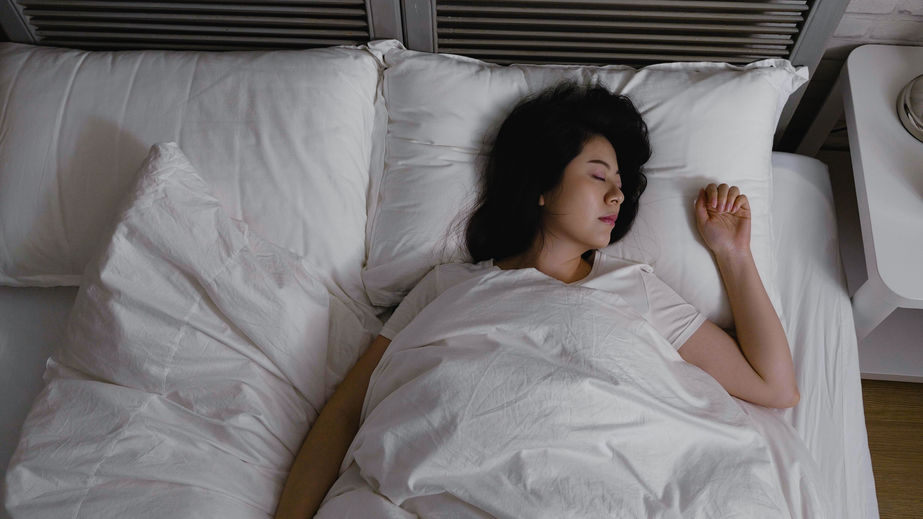Create A Sleep Routine
Creating a sleep and wake schedule, where you go to bed and wake up around the same time can be a great start. By creating a sleep and wake routine, it can help train your body to feel tired and your brain to switch off when you need to each night and switch on upon waking.

Limit Your Screen Time
To limit those racing thoughts before bed, it’s super important to set aside some time to prepare for the next day ahead by knowing your schedule and making sure you have everything prepared to get your day off to a great start. Then, relax and wind down. Scrolling through your social media definitely doesn’t count as relaxing. It’s also a good idea to limit your screen time before bed at night because blocking blue light exposure can help you to fall asleep easier. That’s because electronics like smartphones and tablets emit blue light which is known to suppress your body’s normal release of melatonin, a hormone that helps you feel drowsy. So, lay off using social media for at least an hour or two before bed.
Avoid Alcohol & Caffeine
Try your best to reduce alcohol and caffeine consumption for at least three or more hours before you plan on going to bed and consume both in moderation overall. That’s because the stimulation of active ingredients in both drinks can keep your mind racing and your body awake much longer than you want. While alcohol may feel like it has a sedating effect that helps you fall asleep initially, it will actually start alerting your body when it starts to metabolize which reduces your quality of sleep. So, try only drinking one or two cups of coffee during the morning, avoid drink any caffeine in the afternoon, and don’t drink any alcohol at night if you’ve been having trouble sleeping.
Create A Sleep Haven
Another way to stop your mind racing is to make sure your bedroom is a relaxing space by surrounding yourself with soothing textures, colors, smells and sounds. In order for everything to be as comfortable as possible, you should reduce excess clutter and ensure work-related materials like computer screens are away from your bed and outside your bedroom. You can also help induce sleep by reducing the temperature in your bedroom and with curtains or shades to make your room as dark as possible each night. The combination of lower temperature with total darkness makes it easier for your brain to shut down each night and sleep. Also, having a noise maker can be soothing and help induce sleep, and setting up a natural oil diffuser with naturally relaxing smells can also be helpful.
Final Thoughts
If you are having a hard time shutting off your brain at night, consider adding some of the tips discussed above to your routine. Hopefully these strategies will help, because all aspects of your life can suffer when you’re not getting quality sleep. If you’ve tried everything and you’re still having difficulty, don’t hesitate to reach out to a mental health professional.
